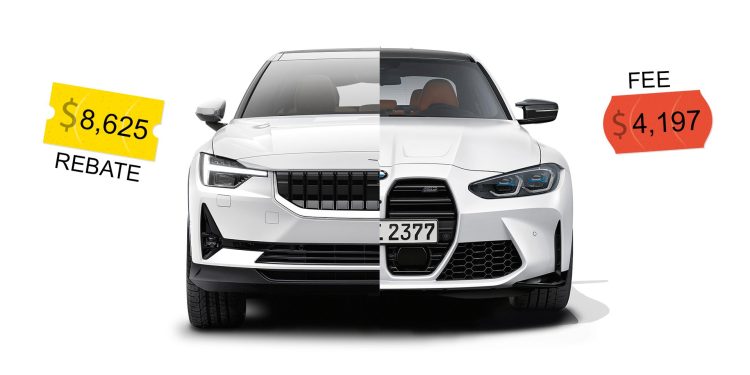EV Torque: Turning up the heat on EVs
Words: Mark Gilbert
It was no joke, but April 1st marked the formal introduction of the Government’s Clean Car Programme.
This makes permanent the incentive on low emissions vehicles and introduces a penalty on high emitters. Discounts on new zero-emissions vehicles can be up to $8,625 while for used imports the figure is up to $3,450. You will now see new labelling on cars for sale that outline their emissions and either their discount or penalty.
The interim programme was already making a difference to new car sales with electric vehicle registrations up 55 per cent year to date February 2022.
EECA research shows that 43 per cent of people would now consider an EV or PHEV for their next vehicle. This is a huge leap from around a quarter of people five years ago. I would expect that figure to nudge closer to 80 per cent over the next five years.
With the introduction of the Clean Car Programme, Drive Electric has released a new website, designed to be a one-stop info shop for anyone interested in buying an EV. Of particular note, it has a tool that allows you to search and compare all available new electric vehicles in New Zealand.
There are more than 70 new electric models on sale in New Zealand, and more than 40 are eligible for the incentive as they retail for under $80,000.
We are hearing from new and used car dealers that high petrol prices and future uncertainty are further stoking consumer interest in electric vehicles. It’s worth remembering that fuelling an EV can be done for the equivalent of 30-40c a litre of petrol.
According to Stuff, recent Trade Me figures indicate a 72 per cent increase in the number of people adding EVs to their watchlist over February, compared with the same month in 2021. Recent work by EECA shows why. The research reveals that for most people EV ownership is cheaper than owning an equivalent petrol car over its lifetime. EECA has recently released a Total Cost of Ownership Calculator tool, which is useful for considering your own circumstances. On average the total cost of ownership for four EV models was found to be 67.5 per cent of the cost of owning the petrol alternatives. The research found that the resale values of the EVs were also higher.
Alongside the Clean Car Programme, we have recently seen another important milestone. LDV has announced its intention to introduce the first electric ute in New Zealand. The Clean Car Programme has been dubbed the ‘ute tax’ amongst some opponents, so it’s pleasing to see a manufacturer seize the clear opportunity in this segment. More electric utes are sure to follow.
Yes, there are headwinds in terms of the global supply of EVs thanks to strong demand, and Covid supply chain constraints of key components. However, consumers are still getting their EVs. So, if you’re in the market for a new car, an EV now makes a convincing and fiscally prudent argument.





